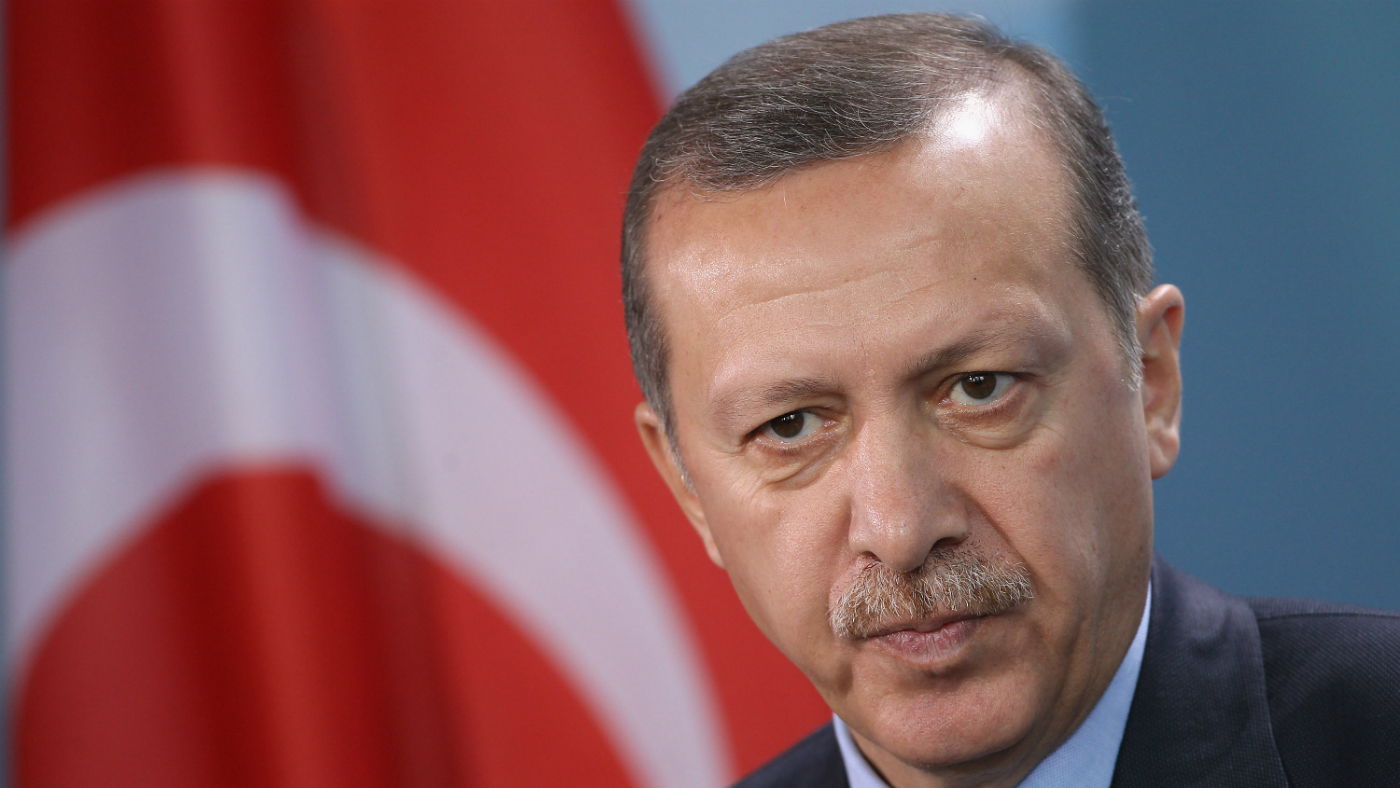Turkey accuses Dutch of Srebrenica massacre
President Recep Erdogan steps up rhetoric and bars Dutch ambassador from returning to Ankara

A free daily email with the biggest news stories of the day – and the best features from TheWeek.com
You are now subscribed
Your newsletter sign-up was successful
Turkey's political spat with the Netherlands deepened today after President Recep Erdogan accused the Dutch of the worst mass killing in Europe since World War II.
"We know the Netherlands and the Dutch from the Srebrenica massacre. We know how rotten their character is from their massacre of 8,000 Bosnians there," he said in a televised speech.
His comments follow the news that diplomatic relations between the two countries had been suspended, with Turkey's Deputy Prime Minister Numan Kurtulmus saying the Dutch ambassador would be barred from returning to Ankara.
The Week
Escape your echo chamber. Get the facts behind the news, plus analysis from multiple perspectives.

Sign up for The Week's Free Newsletters
From our morning news briefing to a weekly Good News Newsletter, get the best of The Week delivered directly to your inbox.
From our morning news briefing to a weekly Good News Newsletter, get the best of The Week delivered directly to your inbox.
The two Nato allies are "now locked in an unprecedented diplomatic crisis," says the BBC, just a day before voters in the Netherlands go to the polls "for a general election dominated by concerns about immigration and Islamic radicalism."
How did the row begin?
Last weekend, the Netherlands prevented a Turkish minister from campaigning in the country on extending Erdogan's presidential powers, the subject of a referendum in Turkey on 16 April, in which the "votes of Turkish citizens in EU countries will be crucial", says The Guardian.
The Netherlands is home to an estimated 400,000 Dutch Turks, half of whom are registered to vote in Turkey.
A free daily email with the biggest news stories of the day – and the best features from TheWeek.com
The decision, made over "security concerns", according to the Dutch, was supported by German Chancellor Angela Merkel, who said the rallies could stoke tensions.
A furious Turkey accused the Dutch of using "Nazi tactics", while Turkish officials have threatened to renege on an agreement with the EU and begin letting refugees in by land to Greece and Bulgaria, reports the Daily Telegraph.
Erdogan's decision to use the Srebrenica massacre as a further attack on the Netherlands shows Ankara does not intend to back down from the dispute, says The Guardian.
The massacre took place in July 1995, during the Bosnian War, when a lightly armed Dutch peacekeeping force was overrun by a Bosnian Serb militia, leading to thousands of Muslim men and boys being rounded up, executed and pushed into mass graves. The incident caused one Dutch government to resign, while Bosnian Serb leader Radovan Karadzic was found guilty of genocide by a United Nations tribunal last year.
What next?
Erdogan said he would not accept an apology from the Netherlands over the refusal to allow the minister to campaign and suggested that further action could be taken.
Dutch Prime Minister Mark Rutte demanded Ankara apologise for calling the Dutch "Nazi remnants" and warned: "If the Turks escalate, then so will we."
Marc Pierini, the EU's former envoy to Turkey, said he saw no immediate solution to the crisis: "The referendum outcome in Turkey is very tight and the leadership will do everything to ramp up the nationalist narrative to garner more votes," he said.
The Daily Mirror reports that "if passed, the April vote will create a powerful new executive run by Erdogan - but his critics say this is a huge attempted power grab".
-
 5 cinematic cartoons about Bezos betting big on 'Melania'
5 cinematic cartoons about Bezos betting big on 'Melania'Cartoons Artists take on a girlboss, a fetching newspaper, and more
-
 The fall of the generals: China’s military purge
The fall of the generals: China’s military purgeIn the Spotlight Xi Jinping’s extraordinary removal of senior general proves that no-one is safe from anti-corruption drive that has investigated millions
-
 Why the Gorton and Denton by-election is a ‘Frankenstein’s monster’
Why the Gorton and Denton by-election is a ‘Frankenstein’s monster’Talking Point Reform and the Greens have the Labour seat in their sights, but the constituency’s complex demographics make messaging tricky
-
 Epstein files topple law CEO, roil UK government
Epstein files topple law CEO, roil UK governmentSpeed Read Peter Mandelson, Britain’s former ambassador to the US, is caught up in the scandal
-
 Iran and US prepare to meet after skirmishes
Iran and US prepare to meet after skirmishesSpeed Read The incident comes amid heightened tensions in the Middle East
-
 Grok in the crosshairs as EU launches deepfake porn probe
Grok in the crosshairs as EU launches deepfake porn probeIN THE SPOTLIGHT The European Union has officially begun investigating Elon Musk’s proprietary AI, as regulators zero in on Grok’s porn problem and its impact continent-wide
-
 Israel retrieves final hostage’s body from Gaza
Israel retrieves final hostage’s body from GazaSpeed Read The 24-year-old police officer was killed during the initial Hamas attack
-
 China’s Xi targets top general in growing purge
China’s Xi targets top general in growing purgeSpeed Read Zhang Youxia is being investigated over ‘grave violations’ of the law
-
 Panama and Canada are negotiating over a crucial copper mine
Panama and Canada are negotiating over a crucial copper mineIn the Spotlight Panama is set to make a final decision on the mine this summer
-
 Europe moves troops to Greenland as Trump fixates
Europe moves troops to Greenland as Trump fixatesSpeed Read Foreign ministers of Greenland and Denmark met at the White House yesterday
-
 Why Greenland’s natural resources are nearly impossible to mine
Why Greenland’s natural resources are nearly impossible to mineThe Explainer The country’s natural landscape makes the task extremely difficult